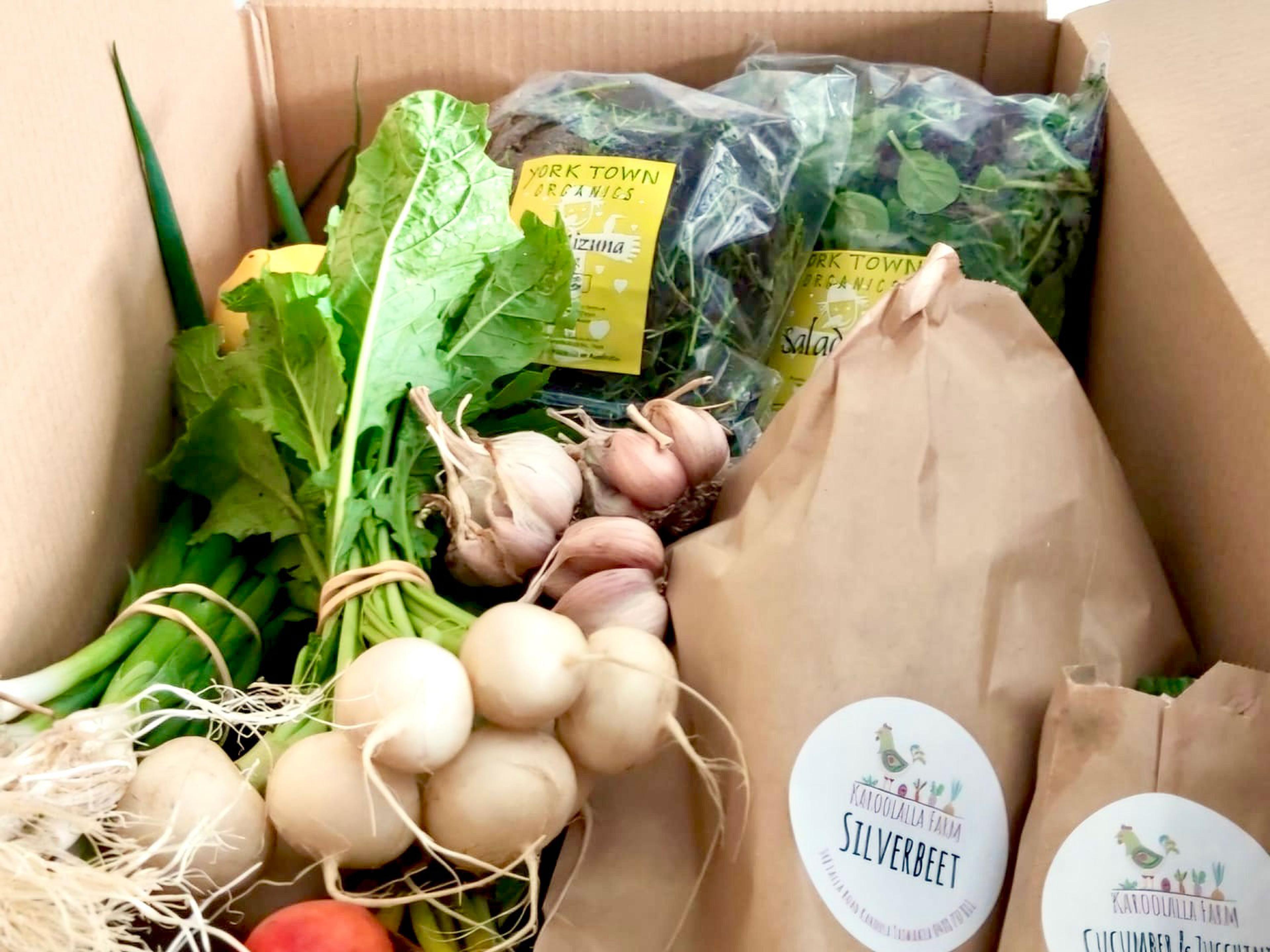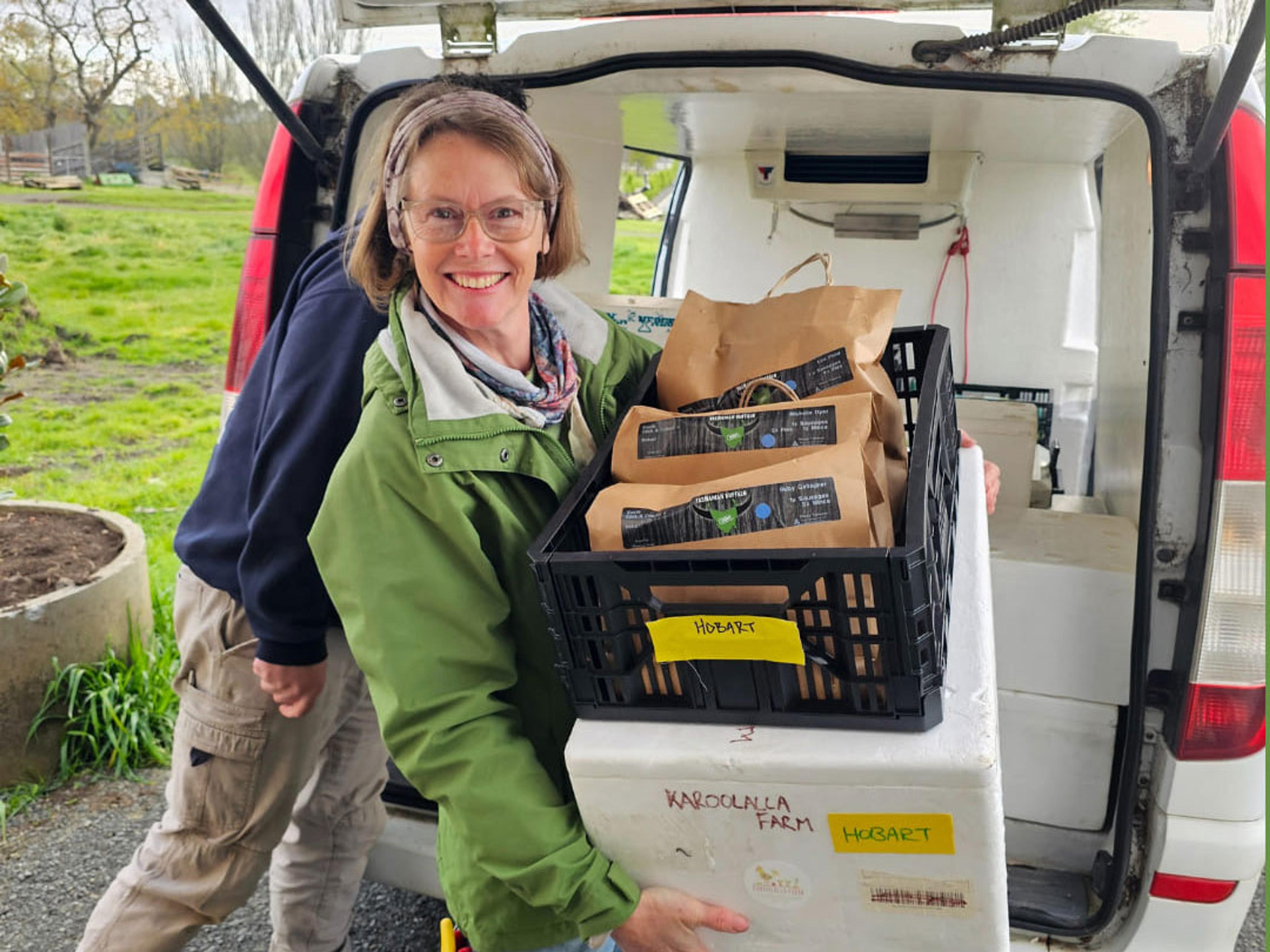The Journey of Tasmanian Produce Collective: Building a Sustainable Local Food System
Who is Tasmanian Produce Collective?
During the pandemic, farmers' markets across the country faced unprecedented challenges, with many forced to shut down. In response, a visionary group of Tasmanian producers came together to create an online farmers market, giving rise to the Tasmanian Produce Collective (TPC). Owned and operated by Tasmanian growers and makers, the organisation collaborates with Open Food Network, providing direct access to producers and customers through an online market website.
During the last few years, TPC has expanded to over 30 producers, 4 hubs and 18 collection points across the state, making it easy for farmers to get a fair price for their produce and Tasmanians to access locally grown, nutrient-dense, quality food. All producers are committed to environmentally responsible practices and high animal welfare standards allowing TPC to champion truly local, sustainable and ethical produce. Local collection points across the state are designed to lower food miles, reduce waste, and keep money within local communities. Each fortnight, TPC is stocked by over 30 producers, ready for customers to support a food system that benefits the community, producers, and the environment.
Challenges and Growing Pains
TPC experienced a rapid demand increase during the pandemic, requiring the organisation to think on its toes and adapt quickly. Sustainable Table recognises TPC's vital role in the local food system in Tasmania and over the past 3 years has granted a total of $103,000 to support TPC through these growing pains.
Some of this grant money was used to invest in a refrigeration vehicle, which provided much-needed control over logistics. Former Board Chair, Jennifer Robinson highlighted that the vehicle has been a game-changer, allowing TPC to manage space efficiently and maintain product quality. "It really has given us an asset that we're able to know is there; we're in control of it. We've got our branding on it, and it's really great to see it out there, driving around," she explained. However, challenges remain, such as separating products like bread from refrigerated items and exploring ways to monetise the vehicle when it is not in use.
To address logistical challenges and improve efficiency, TPC has increased the hours of key team members like Chez Orchard, Co-op Coordinator, who implemented much-needed processes and systems. However, getting members of the cooperative to actively participate in the business has been challenging due to an initial misunderstanding about volunteering requirements. "When you’re a member of the co-op, you're an owner-operator, so you work on the business. So actually what we're referring to as volunteering, is members who are working in the business on that distribution day and providing their collective hours to create the impact for the organisation, which is creating impact for themselves," Robinson explained. TPC is working to manage expectations and reevaluate its model to ensure members understand their roles and requirements, as well as ensuring the TPC operations are able to withstand producer burnout. Small-scale producers are often time poor, already balancing competing business, community and family commitments.
Funding from Sustainable Table was critical to ensuring TPC continued to operate. "I think from our perspective, if we hadn't had that initial Sustainable Table grant, I can safely say that TPC wouldn't be around in its current form," Robinson stated. “This funding has had a significant impact, not only in terms of getting local food on plates but also in supporting the producers who are committed to regenerative farming practices. The grants have supported 33 producers across the state, aiding their transition to sustainable packaging, reducing food miles, and strengthening the local food system”.
Building Community and Growing Impact
TPC's collection centres in Hobart (Shambles Brewery) and Devonport (Island State Brewery) are more than just pick-up points for customers; they are community hubs. "At the Devonport brewery, farmers are having meet-ups there and connecting with eaters and other community members who are hanging out too. It’s really nice to see that building," Robinson shared. These centres are crucial for building relationships and promoting the values of localisation and sustainability.
What’s next for TPC? Well, the organisation is conducting research to understand how it can grow sustainably, looking at other community food enterprises (CFEs) to learn from their structures. Additionally, the team will be increasing marketing efforts and working towards finding the balance between local and values-based purchasing and convenience for customers.
The story of Tasmanian Produce Collective is one of resilience, innovation, and community spirit. By supporting local producers and promoting sustainable practices, TPC is playing an integral role in building a regenerative local economy. With continued support and strategic growth, TPC is well-positioned to thrive and continue making a positive impact on the Tasmanian food system. "The Sustainable Table grant has a big impact when you look at it," Robinson concluded, emphasising the importance of ongoing support for initiatives like TPC.
For more information about Tasmanian Produce Collective, visit their website.
To support the work Sustainable Table is doing to regenerate food and farming in Australia please donate today.

